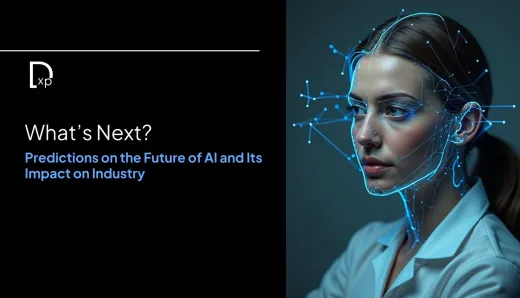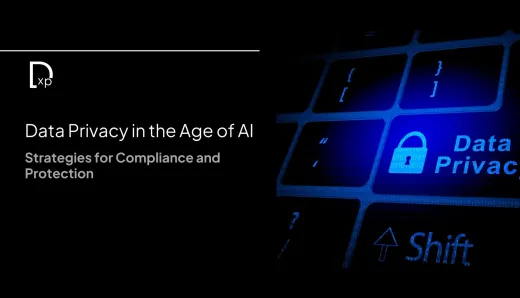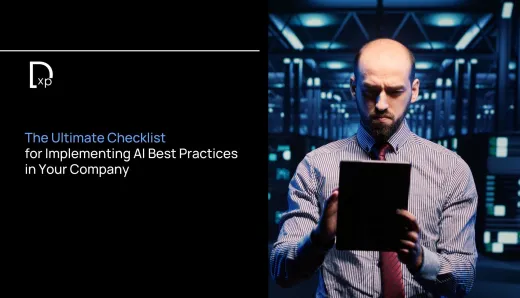The Future of AI: Trends That Will Shape Business Strategy in the Next Decade

The future isn’t arriving—it’s already here. And AI is at the center of it. We’ve moved past the age of experimentation and into the era of integration. AI is no longer a tool reserved for R&D labs or Silicon Valley giants—it’s embedded in customer journeys, manufacturing lines, product roadmaps, and boardroom decisions. The future of AI is not about what’s possible; it’s about what’s inevitable.
For forward-looking businesses, AI isn’t just a technological play—it’s a strategic one. It’s the backbone of agility, personalization, efficiency, and innovation. But as the landscape evolves, so must the approach. The next decade will be shaped not by which companies use AI, but by which companies use it wisely, ethically, and with a vision tied to value creation.
Here’s a look into the key trends shaping the future of AI, and how they’ll redefine business strategy in ways we’re only beginning to understand.
AI Will Become Invisible—but Indispensable
The best technology doesn’t call attention to itself. It just works. And that’s exactly where AI is headed. Over the next decade, AI will become as seamless and foundational as electricity or the internet—powering experiences, systems, and interactions in the background.
Think real-time personalization that anticipates customer needs before they articulate them. Think internal systems that automate decision-making across finance, operations, and HR without a single manual query. Think AI-enhanced creativity tools that support designers, marketers, and strategists in building campaigns at speed and scale.
As AI gets more embedded, the real differentiator won’t be having AI—it will be how well it integrates into your business DNA. Strategy will shift from AI adoption to AI orchestration.
Generative AI Will Reshape Creativity and Content
We’ve only scratched the surface of what generative AI can do. What started with image generators and text-based chatbots is fast evolving into full-stack creative engines—able to produce video, design, music, code, and synthetic data in real time.
In the future of AI, content production becomes hyper-scalable. Marketers will be able to test hundreds of creative variations instantly. Product teams will prototype user experiences using AI-generated wireframes and flows. Customer service will be powered by AI voices indistinguishable from humans—but smarter, faster, and always available.
But this creative explosion comes with new responsibilities. Deepfakes, misinformation, and intellectual property battles will demand new ethical guardrails and content verification protocols. Businesses will need to invest just as heavily in AI ethics as in AI output.
AI Will Power the Autonomous Enterprise
The autonomous enterprise is no longer a sci-fi fantasy—it’s the destination. We're heading toward businesses where AI handles the bulk of routine operations: inventory management, forecasting, compliance monitoring, risk modeling, and even strategic decision support.
This isn’t about removing people—it’s about reassigning them to higher-value work. In the future of AI, humans won’t manage processes; they’ll manage outcomes. They’ll spend less time analyzing and more time acting. And companies that make that shift early will outpace those stuck in manual mode.
Business strategy will need to prioritize system intelligence. Legacy processes and static workflows won’t just be inefficient—they’ll be liabilities. The competitive edge will belong to companies that automate with precision and iterate in real time.
AI + Human: The Rise of Augmented Leadership
AI won’t replace leaders. But it will change what great leadership looks like. The most effective executives in the next decade will be those who embrace AI as a co-pilot—using it to gain insight, test strategies, and make more informed, data-backed decisions at scale.
We’ll see the rise of AI-augmented leadership dashboards—tools that synthesize real-time market signals, internal performance metrics, and predictive analytics into strategic clarity. Leaders who understand how to interpret and act on AI-generated intelligence will have an edge in dynamic, fast-moving markets.
In the future of AI, emotional intelligence and strategic judgment become even more valuable—not less. Because while AI can recommend, forecast, and analyze—it can’t yet feel, inspire, or lead through uncertainty. That’s still our job.
AI Will Be Regulated—and That’s a Good Thing
For years, AI operated in a relatively unchecked environment. That era is ending. From the EU’s AI Act to the increasing number of state-level data privacy laws in the U.S., regulation is catching up—and businesses must be ready.
The future of AI will be shaped as much by policy as by technology. Companies will need to bake compliance into their AI pipelines—tracking data provenance, ensuring algorithmic fairness, documenting model performance, and providing transparency to users and regulators alike.
Far from stifling innovation, this shift will actually accelerate it. Ethical, explainable, and accountable AI will become the default—not the exception. Companies that embrace this mindset will build stronger brands, more loyal customers, and more resilient operations.
The Democratization of AI Will Fuel a New Wave of Innovation
As AI tools become more accessible—thanks to open-source models, low-code platforms, and user-friendly APIs—the innovation no longer belongs only to tech giants. Small businesses, startups, and non-technical teams will be able to create, test, and scale AI solutions tailored to their unique needs.
This democratization will create a tidal wave of niche, localized, and purpose-built AI applications. It will flatten the playing field, unlock new markets, and allow underrepresented voices to innovate on their own terms.
Smart business strategy in the next decade will involve empowering teams across the organization to experiment with AI—not waiting for central teams to lead. Distributed innovation will become the norm, not the anomaly.
Sustainability Will Be the New Benchmark of Smart AI
As the computational cost of AI rises—especially for large language models and generative systems—the focus will shift toward sustainability. Energy-efficient architectures, green data centers, and carbon-aware AI deployment will become critical differentiators.
The future of AI is not only intelligent—it’s sustainable. Companies will need to justify the resource demands of their AI strategies, and they’ll be judged not just on what their models do, but on how responsibly they operate.
Forward-thinking organizations will align AI with ESG goals, report on AI’s environmental impact, and prioritize innovation that’s both scalable and sustainable.
Conclusion: Strategy for the Intelligent Era
The next decade of AI is not about gadgets—it’s about growth. Real, strategic, purposeful growth. Businesses that thrive will be those that understand the future of AI isn’t a destination—it’s a capability. A lens through which every product, process, and person is reimagined.
To prepare, leaders must shift from reactive to proactive. Build governance frameworks. Invest in ethical AI. Empower cross-functional teams. Measure not just ROI, but impact. Because AI is no longer a department—it’s a dimension of your business strategy.
The future of AI is fast, fluid, and fiercely competitive. But it’s also full of possibility. And it belongs to those bold enough to lead it—responsibly.




